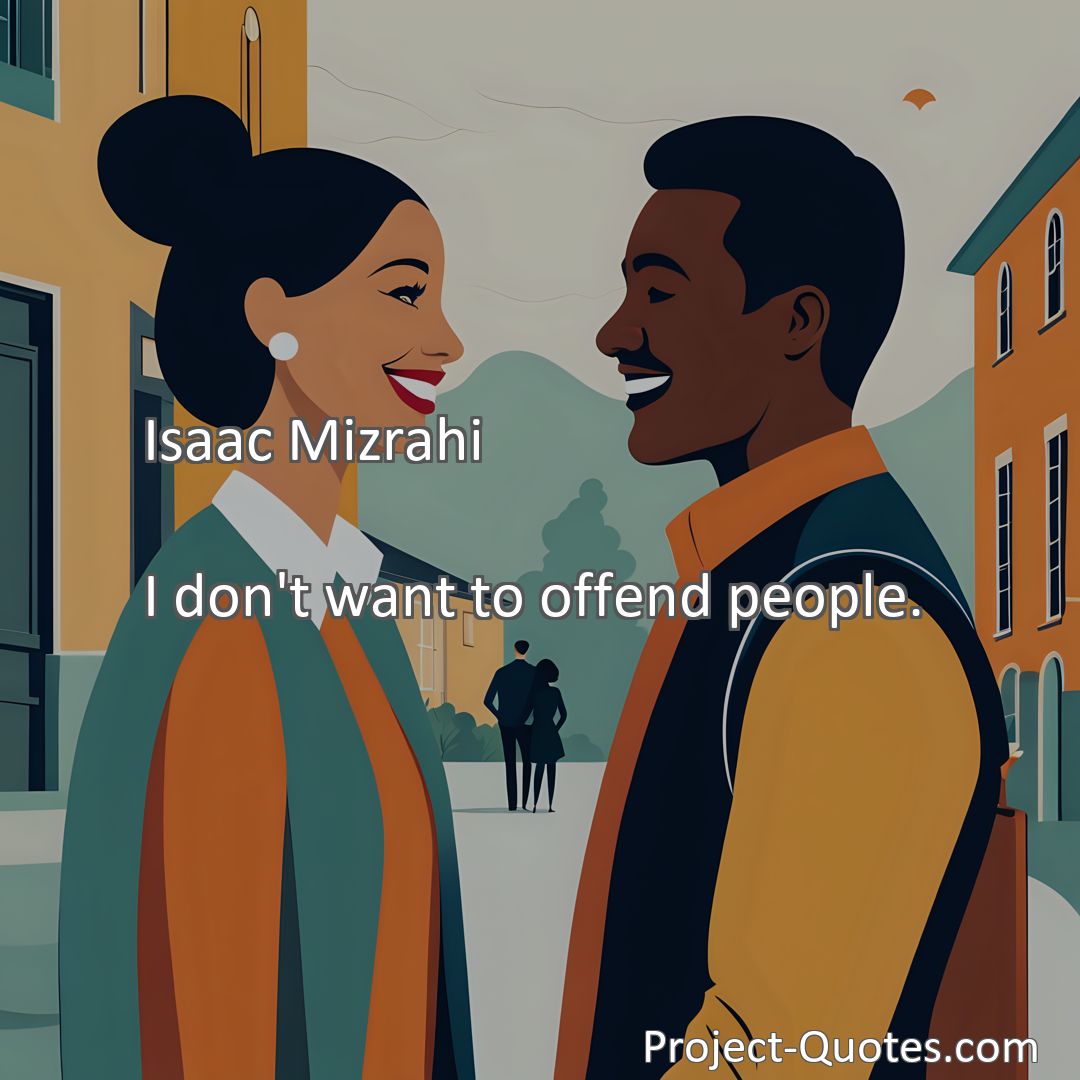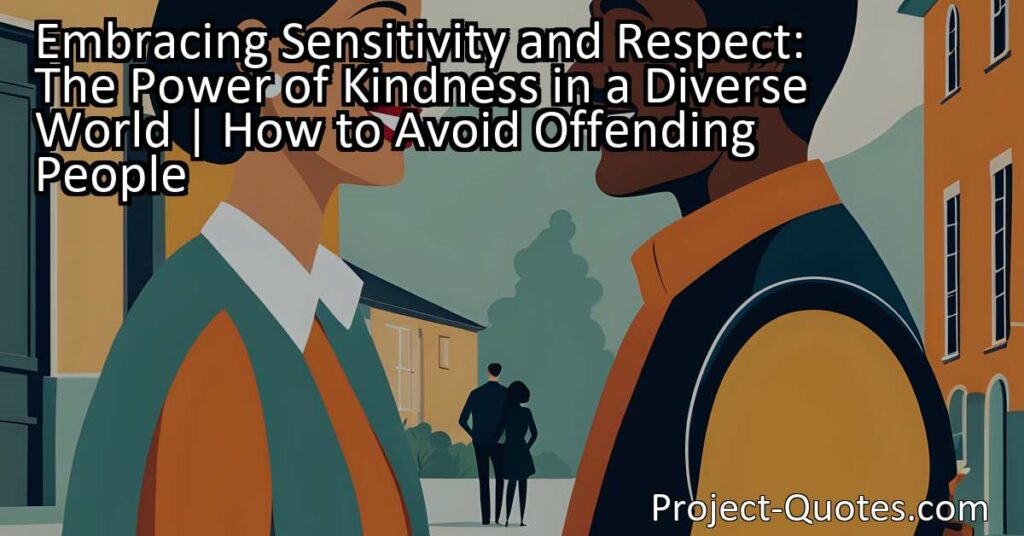I don’t want to offend people.
Isaac Mizrahi
In today’s interconnected world, Isaac Mizrahi’s quote, “I don’t want to offend people,” holds significant relevance as we explore the power of kindness and respect in a diverse world. By embracing diversity, respecting differences, and being mindful of our words and actions, we can avoid offending people and create a harmonious and inclusive society.
Table of Contents
Meaning of Quote – I don’t want to offend people.
Embracing Sensitivity and Respect: The Power of Kindness in a Diverse World
Introduction:
In today’s interconnected world, Isaac Mizrahi’s quote, “I don’t want to offend people,” holds significant relevance. Demonstrating sensitivity towards others reflects a fundamental aspect of kindness and respect. In this essay, we’ll explore the importance of understanding and embracing diversity, emphasizing the significance of language and actions that uplift, rather than offend.
Understanding Diversity:
Diversity refers to the unique qualities and characteristics that make individuals and communities different from one another. While people may differ in terms of race, ethnicity, culture, religion, gender, sexual orientation, socio-economic status, and abilities, these differences should be valued rather than used as a basis for discrimination or exclusion.
Respecting Differences:
Respecting diversity begins with acknowledging that everyone deserves kindness and respect, regardless of their background or beliefs. Each person brings a unique perspective and experience to the table, enriching our understanding of the world. By appreciating these diverse viewpoints, we can foster a culture of empathy, inclusivity, and harmony.
Language Matters:
Language plays a crucial role in how we communicate with others and has the potential to either uplift or offend. Engaging in thoughtful speech can reinforce kindness and respect. By being mindful of the words we choose, we can cultivate an environment where individuals feel accepted and valued.
Avoiding Stereotypes:
Stereotypes are generalizations that oversimplify and categorize individuals based on preconceived notions. They often lead to discrimination, prejudice, and misunderstandings. By treating each individual as a unique human being, rather than a stereotype, we can foster genuine connections and promote understanding.
Open-mindedness:
Being open-minded involves being receptive to new ideas and perspectives. It allows us to challenge our own biases and engage in genuine dialogue with others. With an open mind, we can learn from different cultures, traditions, and experiences, broadening our horizons and promoting mutual respect.
Empathy and Compassion:
Empathy involves putting ourselves in another person’s shoes and understanding their emotions and experiences. Compassion, on the other hand, entails showing kindness and concern for others. By practicing empathy and compassion, we create a safe space where individuals feel heard, seen, and valued.
Active Listening:
Active listening is an essential skill for demonstrating respect and understanding. By giving our full attention to others, maintaining positive body language, and asking clarifying questions, we can show our genuine interest in their thoughts and feelings. This fosters meaningful conversations, allowing us to connect more deeply with others.
Promoting Inclusivity:
Inclusivity refers to the intentional efforts made to ensure that everyone feels welcome and included. This involves creating spaces where diverse voices are heard, perspectives are valued, and cultural traditions are celebrated. When we actively promote inclusivity, we foster a sense of belonging among individuals from all walks of life.
Challenge Stereotypes:
Challenging stereotypes is an act of bravery that allows us to break free from societal expectations and grow as individuals. By questioning and challenging stereotypes, we contribute to dismantling harmful narratives and promoting a more inclusive and accepting society.
Conclusion:
Isaac Mizrahi’s quote, “I don’t want to offend people,” encapsulates the essence of kindness and respect in our interactions with others. By embracing diversity, respecting differences, nurturing empathy, practicing active listening, and promoting inclusivity, we can create a harmonious world where everyone feels valued and appreciated. Let us strive to become ambassadors of kindness, spreading positivity and understanding in every word and action.
I hope this quote inspired image brings you hope and peace. Share it with someone who needs it today!


